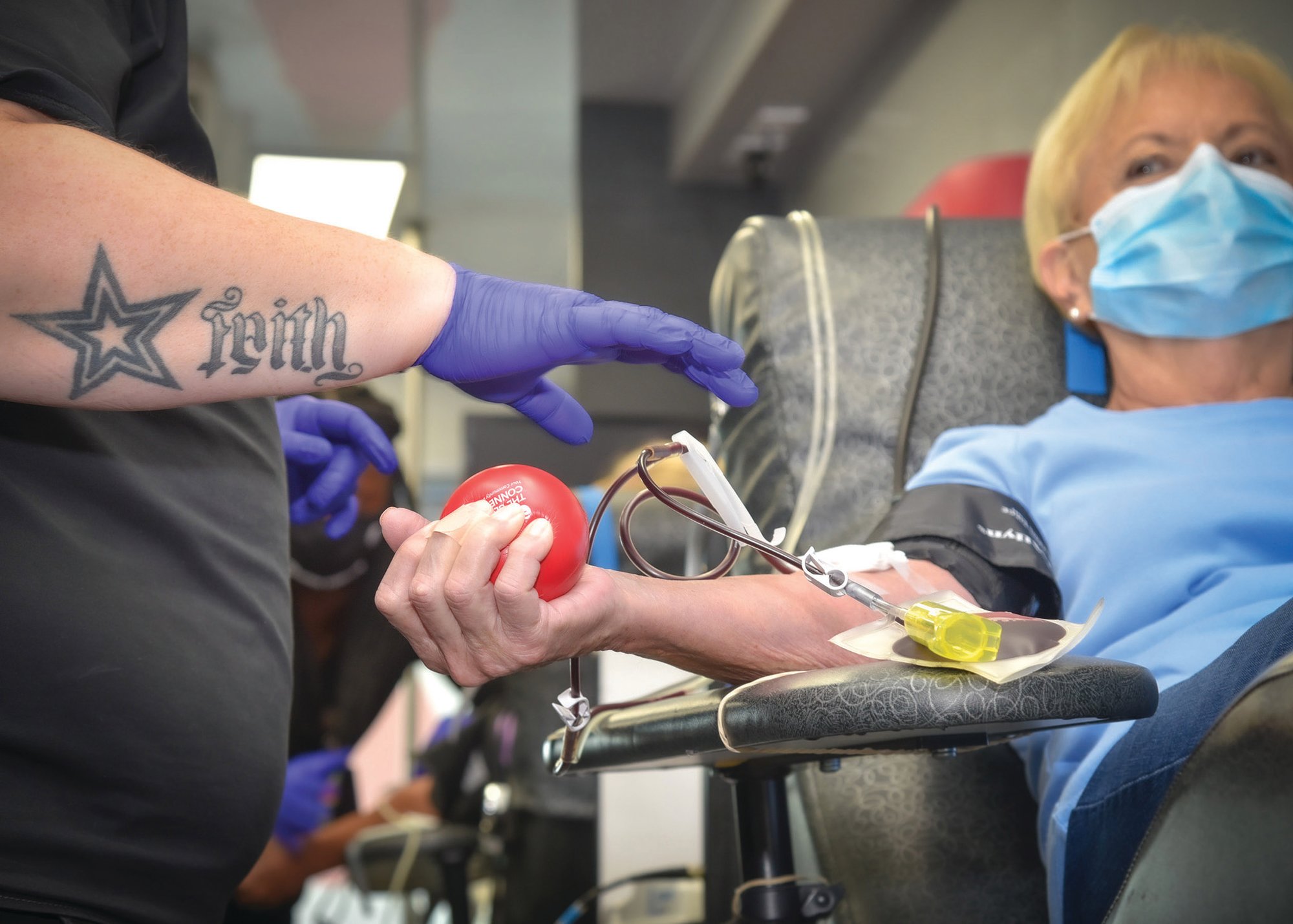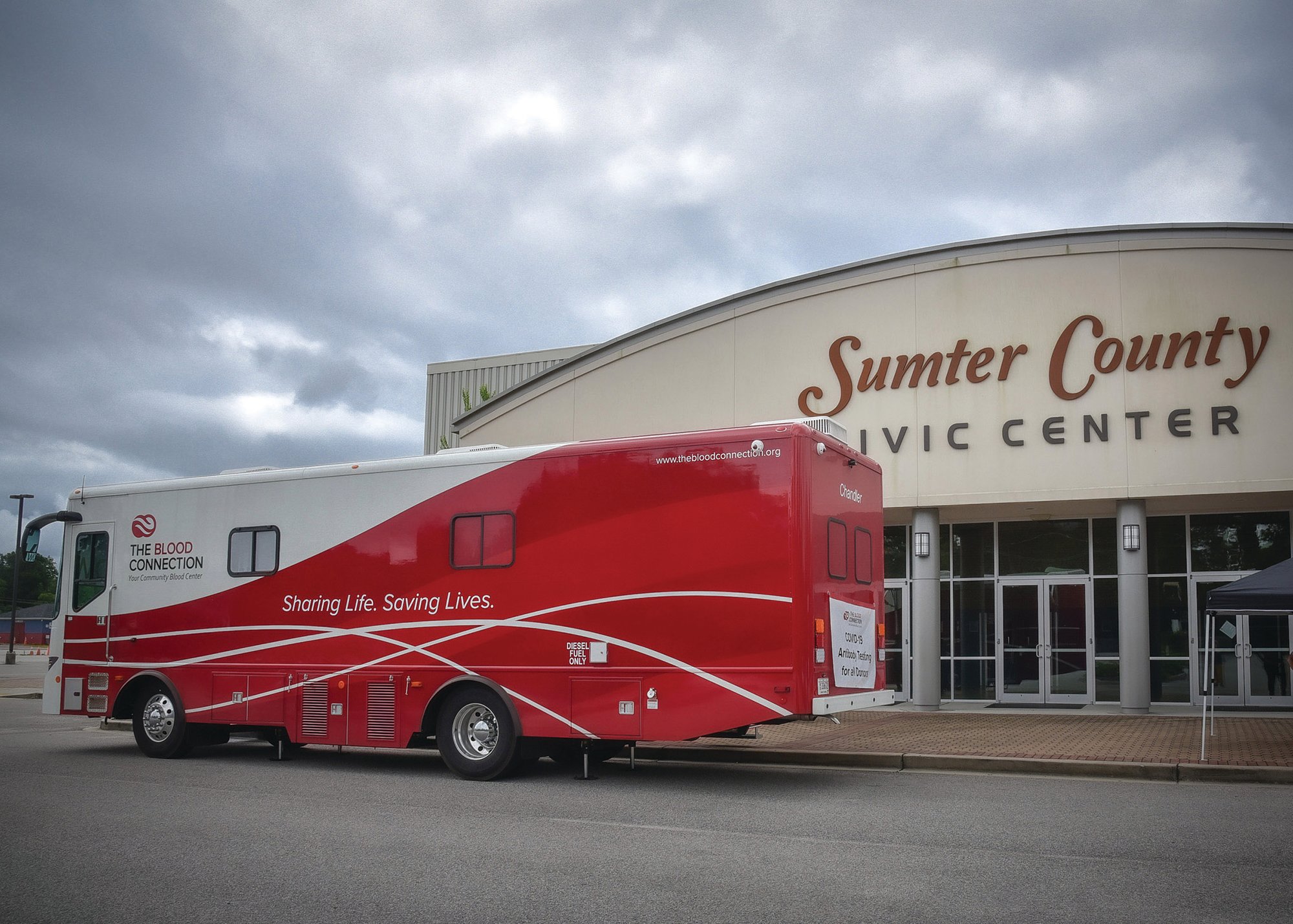Prisma Health Tuomey patient feels 'blessed' after recovery, donates plasma
Sylvia Rhodes was grateful to have recovered from COVID-19 earlier this spring, so when she learned that her plasma contained antibodies that could help others who are suffering, she signed up to donate.
Want to donate your plasma?
Prisma Health and The Blood Connection will host a whole blood drive and plasma donation event on Thursday, July 30, at the American Legion Building on Artillery Drive in Sumter.
- If you have recovered from COVID-19 and would like to donate convalescent plasma, contact Jill Williamson at Prisma Health Tuomey Hospital, (803) 774-8658, to make an appointment. Donors must be at least 14 days symptom-free and will be asked to provide documentation of a positive COVID-19 test result or antibody test: a dated copy of the lab results showing a positive test or a letterhead or prescription pad statement from your healthcare provider.
- To donate whole blood, contact The Blood Connection at (864) 751-1168.
- For information about COVID-19 testing site locations, a symptom checker or a free virtual exam, visit www.PrismaHealth.org.
Prisma Health Tuomey
Prisma Health Tuomey Hospital patient Sylvia Rhodes decided not long after her own brush with COVID-19 that she would become a convalescent plasma donor.
"I was very ill, but my prayers were answered, and I'm basically fine now," she said. "I heard about the plasma treatments and wanted to help someone else who was going through it."
Right now, donating plasma is the best way someone who has had the virus can help another person suffering the effects of infection. The antibodies in the blood plasma of someone who's recovered from the virus have the potential to fight off worsening infection.
Rhodes was diagnosed with COVID-19 early in April.
"I thought I had a sinus infection, but then I got a high fever and felt much worse," she said. "The doctor decided to do a chest X-ray and learned that I had double pneumonia."
She was sent to the Tuomey Hospital Emergency Department and given a strong antibiotic. Her husband took good care of her, she said.
"We hadn't heard a whole lot about the virus at that time," Frank Rhodes said. "I wasn't really afraid, but I didn't want to get it, too, so we separated ourselves in our home."
She celebrated her 75th birthday and her 55th wedding anniversary while sick.
"I made her drink a lot of fluids and kept behind her on her medicine," Frank Rhodes said.
When she recovered, she got a call asking if she would be willing to donate her plasma.
"We thought it was a good idea," Frank Rhodes said. "We were real blessed that she got over it. We decided if she could help someone else, that's what we wanted to do."
"It could help them learn more about the virus," Sylvia Rhodes said. "Maybe it could even give them time to find a cure."
Convalescent plasma isn't new
Prisma Health was one of the first hospital systems to test the effectiveness of blood plasma in critically ill COVID-19 patients by taking part in a national trial led by the U.S. Food and Drug Administration and the Mayo Clinic.
Tingpej Bhatraphol, MD, the infectious disease physician and epidemiologist for Tuomey, said more than 100 patients have been enrolled in the plasma transfusion program at the Sumter hospital since mid-May.
"If you provide the treatment early on, you tend to have a better outcome," he said.
Though the phrase "convalescent plasma" was new to most people this spring, the treatment has been used for more than a century. For example, Tingpej said, convalescent plasma was used to treat patients during the 1918 Spanish flu pandemic. Convalescent plasma has been used whenever the medical community has encountered an infectious disease for which there is no natural immunity, no vaccine and no other effective treatments.
How is it different
from a vaccine?
It's active versus passive immunity. When a person is treated with a vaccine, the immune system begins to actively produce its own antibodies that could kill off new encounters with the targeted pathogen. Convalescent plasma doesn't cause the body to create its own antibodies but instead "borrows" them from someone who has had the disease and recovered. This protection won't last a lifetime, like many vaccines do, but the antibodies can reduce the time it takes a person to recover - and could be the difference between life and death.
The fatality rate for the influenza outbreak of 1918 was reduced by half when the plasma treatments began. Then, as now, the transfusion was most effective when given in the early days of a person's infection before the immune systems had a chance to "overreact" and begin to damage vital organs.
The treatment depends upon the kindness of those who have been infected.
"I would encourage people who have had COVID-19, recovered well and feel healthy enough to be a donor to please donate," Tingpej said. "You can save other people."
For more information about COVID-19 and Prisma Health's continued response and community testing sites, visit www.PrismaHealth.org/Coronavirus.
More Articles to Read




